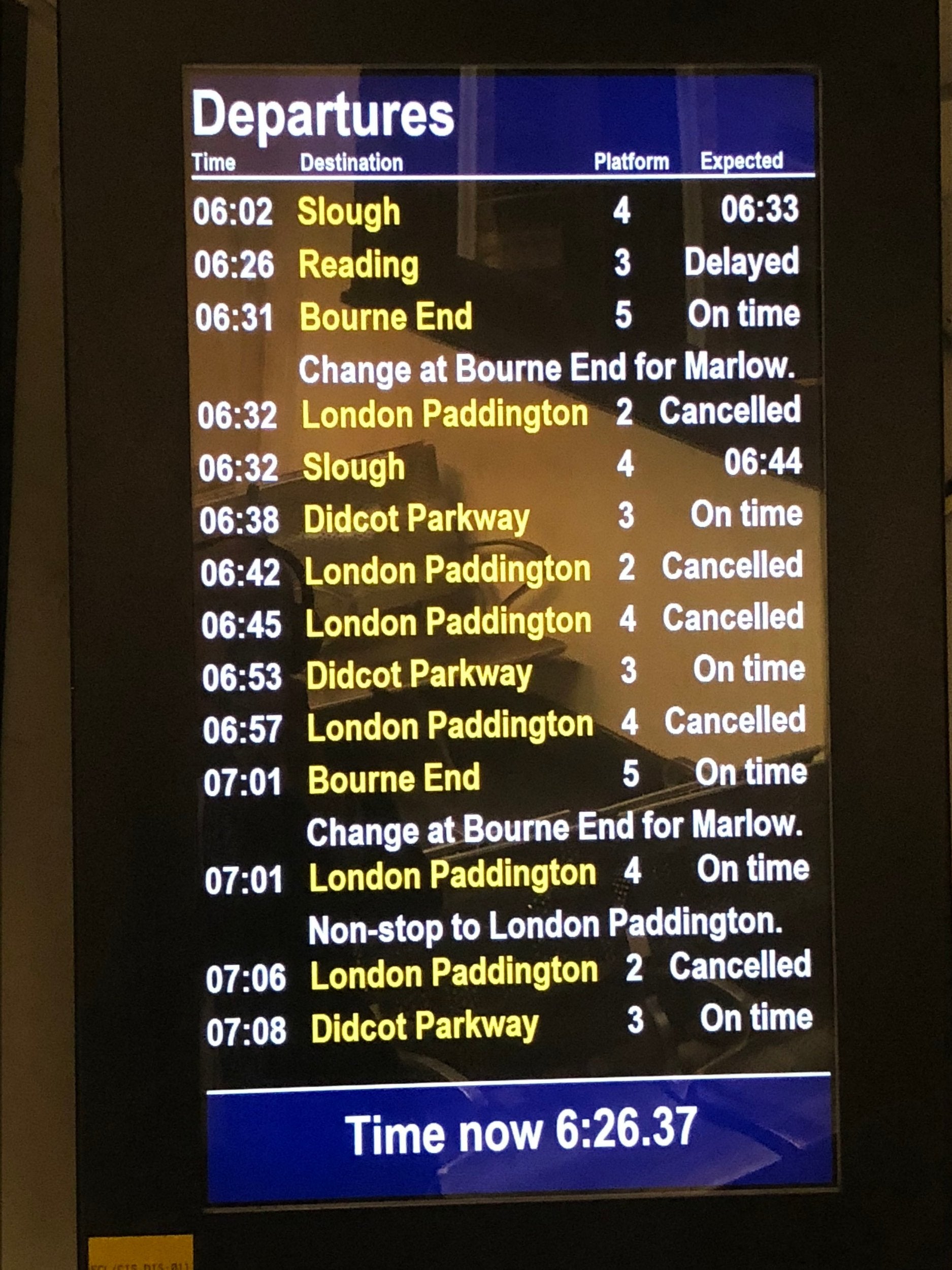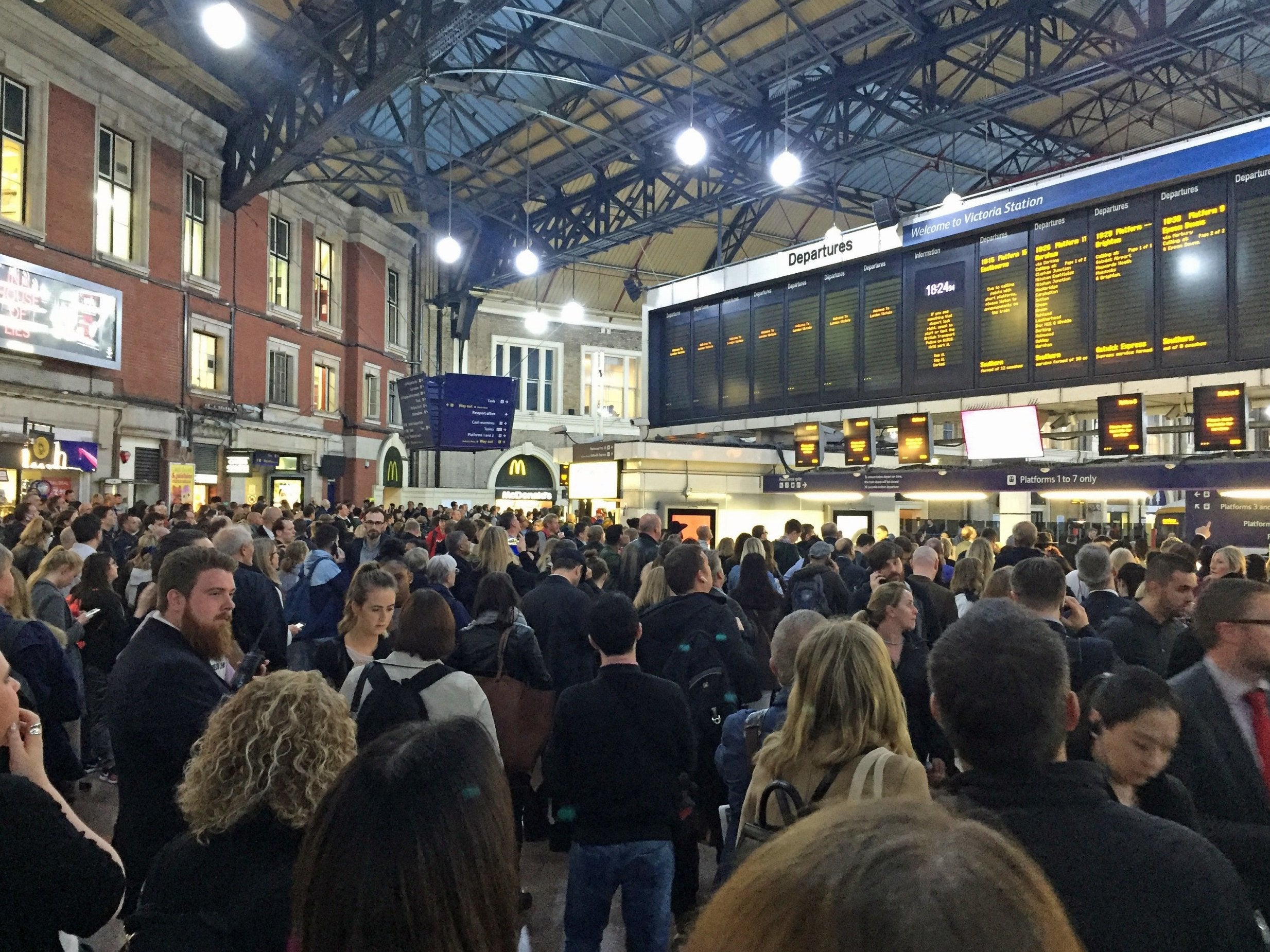London Paddington station forced to close after test train damages overhead power line
Outage hits 100,000 commuters, long-distance travellers and airline passengers
Your support helps us to tell the story
From reproductive rights to climate change to Big Tech, The Independent is on the ground when the story is developing. Whether it's investigating the financials of Elon Musk's pro-Trump PAC or producing our latest documentary, 'The A Word', which shines a light on the American women fighting for reproductive rights, we know how important it is to parse out the facts from the messaging.
At such a critical moment in US history, we need reporters on the ground. Your donation allows us to keep sending journalists to speak to both sides of the story.
The Independent is trusted by Americans across the entire political spectrum. And unlike many other quality news outlets, we choose not to lock Americans out of our reporting and analysis with paywalls. We believe quality journalism should be available to everyone, paid for by those who can afford it.
Your support makes all the difference.One of Britain’s busiest rail stations is at a standstill after damage to overhead line equipment caused by a Hitachi test train.
No trains are running in or out of London Paddington station, which handles over 100,000 passengers on the average weekday. Some services may resume at around noon, but there will be severe disruption all day.
The lines to and from the terminus are completely blocked at Hanwell, a suburban station between Ealing and Slough.
Passengers are being told by Great Western Railway: “The damage was caused by a HItachi test train.”
Problems began on Tuesday evening, and repairs are not expected to be completed until late on Wednesday.
The new Hitachi train was being tested prior to being introduced to service on the route from Paddington to Devon and Cornwall.
A Hitachi spokesperson said: “After years of successful testing on the route we are taking today very seriously, a full and thorough investigation is taking place to identify the cause.”
A Network Rail spokesperson said: “We are experiencing severe disruption on all services into and out of London Paddington and this is likely to affect services in other areas for the rest of the day.
“This is owing to 500 metres of extensive damage caused to overhead power lines in the Hanwell area yesterday evening. We have been working throughout the night to understand the extent of the damage and we are focussing on trying to open some lines into London Paddington as soon as possible.
“We apologise for the inconvenience this has caused passengers and we advise passengers to check before they travel. However, severe disruption is expected on most routes.”
Paddington is the London hub for Great Western Railway trains from the Thames Valley, the West of England and South Wales. It also serves Heathrow Airport with Transport for London and Heathrow Express trains, which together normally offer six trains an hour.
Commuters are being advised to use Underground services for shorter journeys where possible. Longer-distance commuters can use their tickets on the line between Reading and London Waterloo, but this diversionary route is also heavily disrupted.
All trains are delayed by a signalling problem between Reading and Wokingham and what South Western Railway called “numerous incidents on our network”.
Passengers to and from Oxford can use the Chiltern line serving London Marylebone. But journeys will be take much longer than planned, and alternative trains are likely to be extremely crowded.
Jennifer Smith from London was booked to fly to Dubai on Tuesday night to get to a family gathering, but her Heathrow Express train failed to reach the airport in time and she missed the flight. It is not clear if she will be able to claim recompense from the failure.
On Wednesday morning, Aranya Rauff was trying to get from her home in north London to Newbury in Berkshire. She told The Independent: “I heard an announcement on the Underground but I thought it was only about the Heathrow Express.
“I now have to get to Waterloo, get a train to Reading and then another one to Newbury.”
InterCity travellers can use the Waterloo-Reading link to connect with trains to Bath, Bristol, Devon, Cornwall, Cardiff and Swansea, but normal long-distance services have been halved. Passengers to Worcester and Malvern are being advised to travel via Birmingham.

Some rail-replacement buses are operating between Paddington and Heathrow, though airline passengers are being advised to use the London Underground, taking up to four times as long. Some travellers who arrive short of time and discover the trains are not running are taking taxis instead.
Many airport and airline staff rely on trains to get to work at Heathrow, which could pose operational problems for Britain’s busiest airport.
While most commuter services are electric, long-distance services can run on diesel. But they are unable to operate at present because the lines are blocked.
Commuters faced similar problems at central London’s Victoria station on Tuesday evening after Southeastern services were hit by a separate power failure.

A statement from Southeastern Railway said reports of a “power supply issue from the electrical control room that serves all routes to and from Victoria” caused the signalling system to “revert signals to Red (For safety reasons) and the tracking system to fail”.

Join our commenting forum
Join thought-provoking conversations, follow other Independent readers and see their replies
Comments